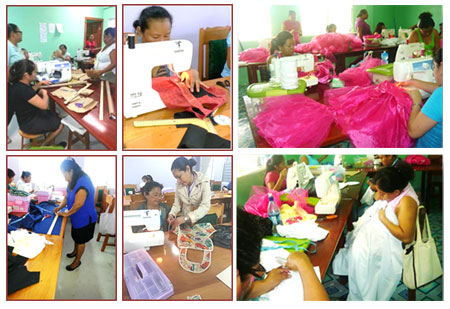BELIZE CITY—In recent years, vendors have adopted the practice of importing school uniforms from places like Guatemala, contrary to the traditional practice which Belizeans have had of getting their uniforms made by local seamstresses and tailors, but a group of women from northern Belize have been trained with the skills necessary to bolster local garment production.
According to the Caribbean Development Bank (CDB) and the Social Investment Fund in Belize, a group of 26 women graduated this month from the Garment Construction Training project, financed through a loan of US$51,440.00 from the Bank.
According to SIF, “Sewing was identified by the women’s groups as a skill, since many of them buy custom-made school uniforms or sometimes travel to other communities in search of a seamstress. Acquiring this skill will allow them to sew uniforms for their children and other families at a reasonable price, and in this regard, they can become self-sufficient.”
“The women, who hail from the villages of San Jose and Guinea Grass [Orange Walk], are now equipped with skills to access employment opportunities, generate income, be self-sufficient, and significantly contribute to further develop their communities and by extension the wider society of Belize,” said Executive Director of SIF, Mr. William Lamb Jr.
The women received their certificate of completion at the end of the 10-week training conducted under the San Jose Multipurpose Center and Guinea Grass Multipurpose Center sub-projects implemented by SIF.
SIF said that small business training in defining entrepreneurship, decision-making and leadership, market and marketing, business opportunities, and business mentoring were also offered to participants.
The CDB said that the sewing machines used for the training project—four industrial and 20 regular machines—will remain at the Multipurpose Centers in the respective villages for future production and programs.
It added that, “Both groups have also received startup material for production of items for sale and plan to partner with the Cooperative Department, Women’s Department and the House of Culture.”
The women will also make items such as decorative kitchen curtains, aprons, mittens, chef caps, chair covers and pillowcases.
They will cater to a consumer market of about 5,000.

